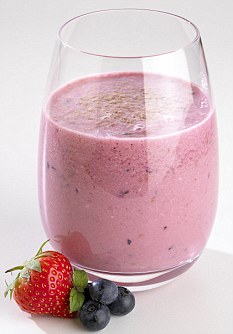There are many advices for dieter to keep fit and no longer gaining weight. It seems never to be enough to find the best diet plans. Discuss more, experience more help you melting away fat within a short time.
Calcium-rich foods or fermentable carbs are those you are likely familiar with. And there are also many other recipes good for your health and are key for fat loss. Recommended smoothies and quick juices, you will soon find them excellent choice.
The smoothies are fully made of fruits and vegetables as well – a total natural and healthy ingredients. The standard method for a cup of smoothie are:
- Get the blender out, sling in a few ice cubes and a teacup of cold water then add your fruits of choice, chopped into bite-sized pieces. Whizz until smooth.
- Add the extras – fruit juice, herbs, spices, flavourings – then blitz again.
- Add cold water if you need to thin it down, strain the juice through a sieve if you don’t like the seedy bits.
The next instruction is how to choose the right fruits for your smoothies and quick juices. Actually, what fruits you like are not always what you should consume if you are planing for a weight loss diet. Those fruits which are high in sugar amount are not recommended, even are restricted.
So, the best combinations are listed here:
- Apple, raspberry and grapes with fresh orange juice
- Grapefruit, passion fruit and pineapple
- Tangerine, strawberry and banana
The reasons for choosing those fruits will be explain right below:
Apple
• Nutritional value (1 medium): 75 calories, 3 g fibre
• Disease-fighting factor: Apples contain antioxidants called flavonoids, which may help lower the chance of developing diabetes and asthma. Apples are also a natural mouth freshener and clean your teeth with each crunchy bite.
Raspberry
• Nutritional value (1/2 cup/125 mL): 32 calories, 4 g fibre, source of folate and magnesium
• Disease-fighting factor: Raspberries are rich in ellagic acid, an antioxidant that may help preventcervical cancer. Promising studies in animals have led researchers to believe that raspberries may also help treat esophageal and colon cancer.
Grape
• Nutritional value (1/2 cup/ 125 mL): 53 calories, less than 1 g fibre, source of manganese
• Disease-fighting factor: Grapes contain resveratrol, an antioxidant that may help prevent heart disease by reducing blood pressure levels and lowering the risk of blood clots. Resveratrol may also help stop the spread of breast, stomach and colon cancer cells.
Grapefruit (pink)
• Nutritional value (1/2 grapefruit): 52 calories, 2 g fibre, source of vitamin A
• Disease-fighting factor: Pink grapefruit contains lycopene and flavonoids, which may help protect against some types of cancer. Grapefruit also boasts an ample supply of pectin, a soluble fibre that may help lower cholesterol levels.
Pineapple
• Nutritional value (1/2 cup/125 mL): 40 calories, 1 g fibre
• Disease-fighting factor: Pineapple contains a natural enzyme called bromelain, which breaks down protein and helps aid digestion. Bromelain may also help prevent blood clots, inhibit growth of cancer cells and speed wound healing.
Banana
• Nutritional value (1 medium): 105 calories, 3 g fibre, source of vitamin B6, potassium and folate
• Disease-fighting factor: With 422 milligrams of potassium per banana, these sweet delights have more potassium than most fruit and may help lower blood pressure levels.
Depending on your favorite fruits, you may choose many kinds such as avocado, tomato, strawberry, watermelon or cantaloupe, etc. The thing is all fruits offer health benefits, do not ignore them.
